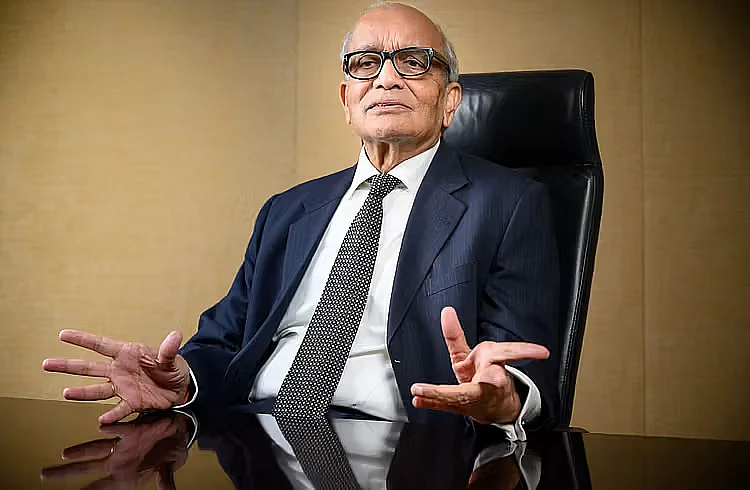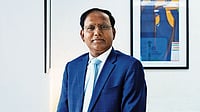
Maruti Suzuki Chairman RC Bhargava said India should not yield to US tariffs and must stand united with dignity.
He spoke on global uncertainty caused by US tariff policies during the company’s 44th AGM.
US 50% tariffs on Indian goods, effective August 27, will impact labour-intensive sectors like shrimp, apparel, diamonds, leather, footwear, and jewellery.
Bhargava urged Indians to support the government and resist bullying in trade matters.
India should not give in to US bullying on tariffs, Maruti Suzuki Chairman RC Bhargava said on Thursday, adding the country should maintain its dignity and stand united against the intimidation.
Addressing shareholders at the company's 44th Annual General Meeting (AGM) here, the veteran industry leader spoke about the global uncertainty in recent months on account of US tariffs.
"President Trump has, in many ways, forced nations to think. Conventional policies and relationships, in particular, the use of tariffs in diplomacy, are being seen for the first time," he noted.
The US's 50% tariffs on Indian goods came into effect from August 27, and will impact exports and job creation in labour-intensive sectors such as shrimp, apparel, diamonds, leather and footwear, and gems and jewellery.
"I believe it is our duty as Indians to do our very best to support the government and maintain our dignity and respect, and not give in to any kind of bullying in this matter. The nation has to stand united at this point of time," Bhargava said.
The government is trying to speed up the rollout of the export promotion mission to help exporters, a government official said on Thursday, a day after the US imposed a total of 50% tariffs on Indian shipments.
Bhargava also termed the Goods and Services Tax (GST) restructuring announcement as a major reform that would lead to faster economic growth and employment generation.
"We are hopeful that the proposal which the Prime Minister made will result in the GST on small cars being reduced to 18%. But we have to wait till the official announcement is made. It is a matter of happiness that the government has recognised that there are a large number of consumers at the lower end of the market and they need some help in these difficult times," Bhargava said.
"My hope and expectation are that, subject to approvals by the GST Council, we will see a revival of the small car market," he added.
The Centre has proposed a two-tier GST structure of 5 and 18%, besides a 40% special rate on a select few items to the group of ministers (GoM) on GST rate rationalisation.
GST is levied at 5, 12, 18 and 28%. While food and essential items are either at nil or 5%, luxury and demerit goods are in the 28% slab, with a cess on top of it.
Presently, automobiles are taxed at 28%, which is the highest GST slab. A compensation cess, ranging from 1 to 22%, is levied on top of this rate, depending on the type of vehicle.
The total tax incidence on cars, depending on engine capacity and length, ranges from 29% for small petrol cars to 50% for SUVs. Electric vehicles are taxed at a rate of 5%.
Bhargava noted that, considering that a large percentage of the Indian population is dependent on two-wheelers for personal transportation, the high risk and discomfort associated with these vehicles, there is a need to consider the introduction of cars that would provide an alternative to the scooter owners. Japan in the 1950s solved a similar problem by introducing the Kei cars, he said.
"They are smaller, have lower safety regulations and are subject to lower taxes than other cars. I think India needs to consider something similar to that," he added.
Bhargava noted that whether it is the United States, Europe, China, or South Korea, electric cars and hybrid cars are growing together everywhere.
"The taxation on electric cars and hybrid cars in Europe and the United States is very similar. In India, we believe that there is a need for technologies to be encouraged by the taxation system, not only electric vehicle technology, but any technology which leads to cleaner cars, reduction of oil consumption, reduction of pollution in the air and which leads us towards net-zero," he stated.
Terming the rare earth magnet shortage issue "a warning signal", he noted that the matter seems to be resolving due to the government's intervention.
"Our government has entered into a landmark free trade agreement with the United Kingdom, and this could form a template for future agreements," he added.




























